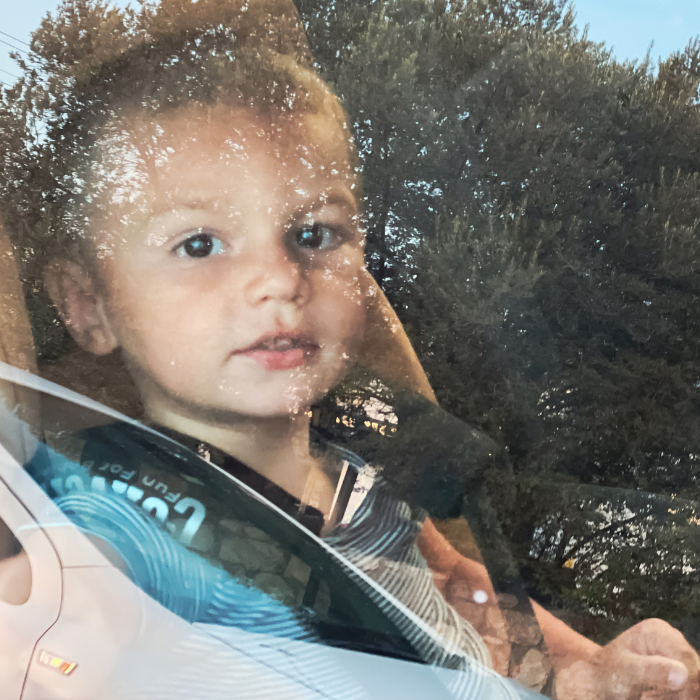
It’s best to be matter-of-fact and use accurate terminology, explains Yvonne Walus.
When you teach your baby to talk, you point to a book and say “book”. You point to your nose and say “nose”. But when do you teach them words for their private parts, and what words do you use? As to the when, it should come naturally. If you feel comfortable pointing at your chest and saying “breast” while feeding your infant, many experts suggest you do just that. If not, try a less direct approach. Bathtime is a great opportunity to tell your baby that “Mummy is washing Jack’s hand, Mummy is washing Jack’s bottom, Mummy is washing Jack’s penis.”
That’s right, the idea is to use adult words for genitals, no matter how awkward we may feel – remember, to your child it’s just another word, without any sexual connotations. By the time they can call their elbow “elbow” (around age two), they should be calling their anus an “anus”. Just like that.
There is a very good – if disturbing – reason for using the correct terminology. If your daughter says that somebody touched her “foo-foo” or “flower”, it doesn’t sound serious, and the adult to whom your child is complaining (eg kindy teacher) might not understand. If she says someone touched her vulva, there is no room for misinterpretation. Also, if your child suddenly comes up with “cutesy” words for the genitals, it may raise a red flag. Finally, not calling genitals by their real names might give your child the impression that there is something bad about private parts, and might lead them to keeping any inappropriate incidents a secret out of fright or embarrassment. So, boys have a penis and testicles (or a scrotum). Girls have a vulva and a vagina – the vulva is the part visible outside, and that the vagina is inside.
As your toddler turns into a preschooler and then a schoolchild, it’ll help their social life to learn other terms, ones they might encounter on the playground. Say something like: “This is your penis. Your friends might call it a willy or a ding-dong. Have you heard any other names?”
When your child goes to school, they might bring home words that aren’t welcome under your roof. Reiterate that body parts go by their anatomical name, and that vulgar words are not nearly as cool as their friends seem to think.
The bottom line: Be factual, be composed, and aim to come across un-embarrassed.
The underwear/swimsuit rule
Teach your children the underwear rule: no one should touch them on parts of the body usually covered by their underwear (or swimming togs), and also, they should not touch others in those areas.
It won’t fall off, so you don’t need to keep checking on it
Around the age of three or four, many children, but predominantly boys, become preoccupied with their genitals. They may keep touching their private parts, or straddle objects that feel good between their legs. This exploration is entirely natural; however, we need to provide guidance as to what’s appropriate and socially acceptable. The best way to do it is to distract the child with another activity. If that doesn’t work, explain that such activities are private. The important thing is to stay calm, and not make a big deal out of it.
Ages and Stages
0-2:
Teach textbook terms for private body parts. Practise in front of the mirror until you can say “penis”, “scrotum”, “vagina”, “vulva”, and “anus” in a natural way.
2-4:
Remind the kids that private parts are private. Talk about inappropriate touching, and about the
importance of never keeping a secret. At this age, you may get the “Where do babies come from?” question. Most likely, they don’t want the Tag-A-Slot-B explanation. Tell them that Daddy’s seed joins with Mummy’s egg to grow into a baby in a special place inside Mummy’s body.
4-6:
Some children remain sexually uncurious, while others may ask how Dad’s seed gets into Mum, or what sex actually is. Give it to them straight: “Sex is when a man put his penis inside a woman’s vagina. It’s for adults only.”
6-9:
This is a good time to start telling your children about puberty, and what to expect when they get older. If they haven’t asked about sex yet, initiate the conversation yourself − an illustrated book may be a good starting point. The other extreme may be your nine-year old asking what a blow job is. If you’re caught off-guard and unable to answer without awkwardness, promise to get back to them later that day.
10-12:
By now, they wouldn’t dream of asking you about sex. Sex is gross. Kissing scenes in movies are gross. Girls think that boys are gross and stupid, while boys think that girls are gross goody-goody-twoshoes suck-ups. Enjoy this stage; they’re about to grow out of it!








